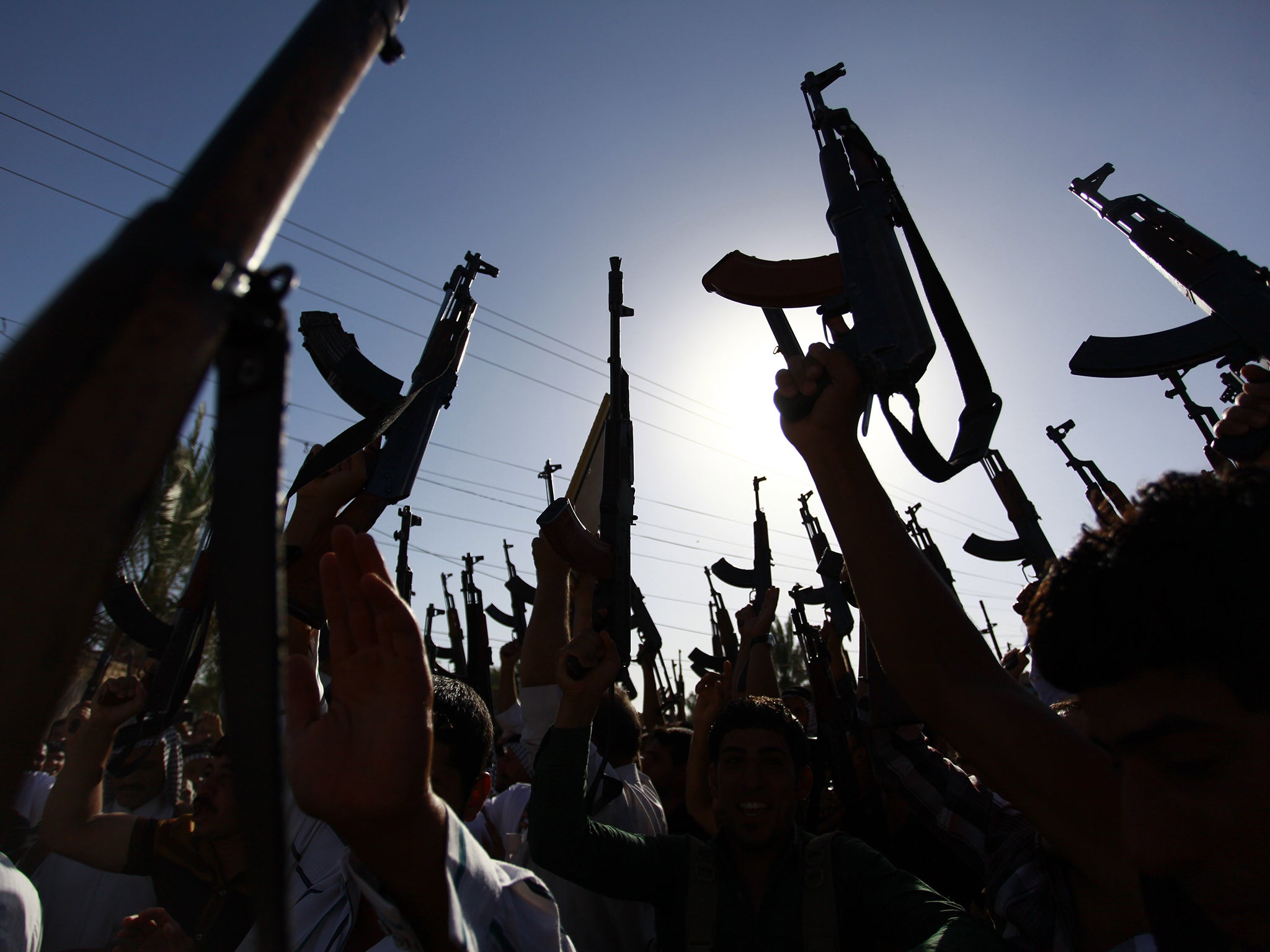Isis chemical weapons unit head ‘captured by US special forces’
The Isis operative was reportedly captured in a raid last month

Your support helps us to tell the story
From reproductive rights to climate change to Big Tech, The Independent is on the ground when the story is developing. Whether it's investigating the financials of Elon Musk's pro-Trump PAC or producing our latest documentary, 'The A Word', which shines a light on the American women fighting for reproductive rights, we know how important it is to parse out the facts from the messaging.
At such a critical moment in US history, we need reporters on the ground. Your donation allows us to keep sending journalists to speak to both sides of the story.
The Independent is trusted by Americans across the entire political spectrum. And unlike many other quality news outlets, we choose not to lock Americans out of our reporting and analysis with paywalls. We believe quality journalism should be available to everyone, paid for by those who can afford it.
Your support makes all the difference.The head of an Isis unit attempting to develop chemical weapons has been captured by US Special Forces, it has been claimed.
The chemical weapons head was captured during a raid near the northern Iraqi town of Tal Afar last month, two senior intelligence officials told the Associated Press.
US officials said last week an Isis leader had been captured, but did not identify him, saying only that he had been held for two or three weeks and was being questioned.
Two Iraqi officials, however, have identified the man as Sleiman Daud al-Afari, who worked for Saddam Hussenin’s now-dissolved Military Industrialisation Authority where he specialised in chemical and biological weapons.
The officials, who spoke on a condition of anonymity, said Afari is about 50 years old and heads Isis’ recently established branch for the research and development of chemical weapons.
According to The New York Times, the Isis leader – described by the military as a “significant” Isis operative - is currently being held in American custody at a temporary detention facility in Erbil, Iraq where he provided details about the group’s chemical activity.
He allegedly told US officials the militant group had weaponised mustard gas into powdered form and loaded it into artillery shells.
One defence official reportedly said the mustard gas was not concentrated enough to kill anyone, but it could maim people.
Defence department officials said the US does not intend to hold the detainee indefinitely and they will be handed over to the Iraqi and Kurdish authorities after being interviewed.
The capture of the Isis chemical leader is first known major success of the US’s intensified perusal of Isis militants on the ground.
The Obama administration launched the new strategy in December, deploying a commando force to Iraq dedicated to capturing and killing Isis leaders in clandestine operations, as well as generating intelligence leading to more raids.
The US-led coalition began targeting IS' chemical weapons infrastructure with airstrikes and special operations raids over the past two months, the Iraqi officials and a Western security official in Baghdad said.
Airstrikes are targeting laboratories and equipment, and further Special Forces raids targeting chemical weapons experts are planned, the intelligence officials said.
Isis is understood to be making a determined effort to develop chemical weapons, Iraqi and American officials have said.
The group is believed to have set up a special unit for chemical weapons research, made up of Iraqi scientists from the Saddam-era weapons program as well as foreign experts.
In February, US intelligence officials confirmed Isis had succeeded in making and deploying chemical agents in the Middle East.
Director of National Intelligence, James Clapper, said “sulphur mustard” had been used in an alleged Isis attack in Syria and there are “numerous allegations” of Isis’ use of chemical weapons in both Syria and Iraq.
So far the extremist group is believed to have only created limited amounts of mustard gas and appears incapable of launching a large-scale chemical weapons attack, which would require expertise, proper equipment and materials and a supply chain to produce enough of the chemical agent to pose a significant threat.
Additional reporting by Associated Press
Join our commenting forum
Join thought-provoking conversations, follow other Independent readers and see their replies
Comments